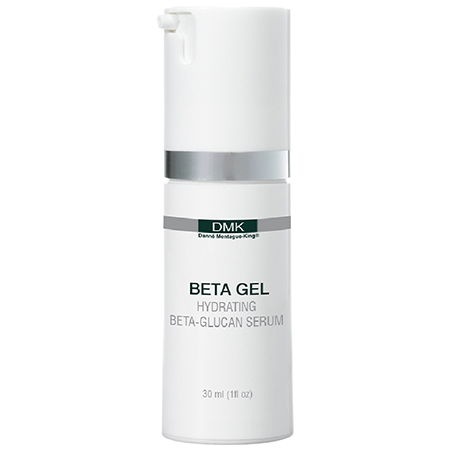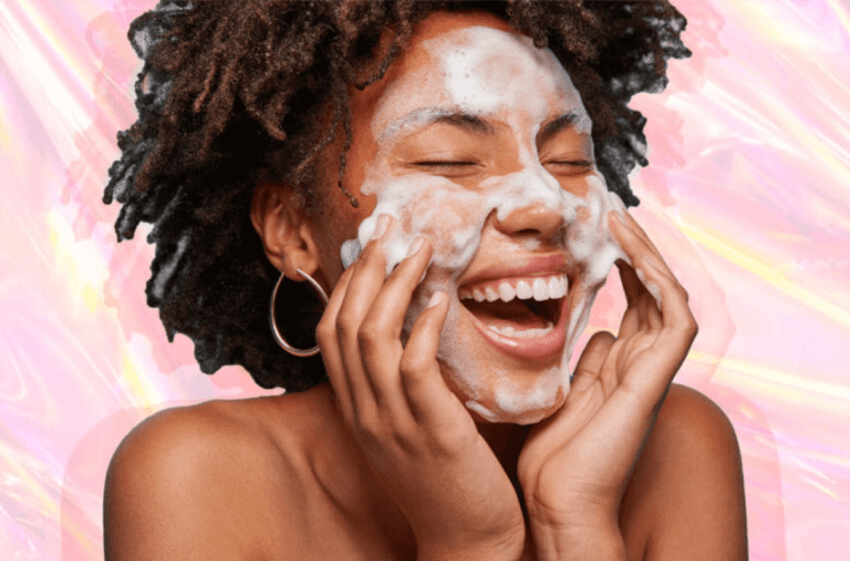Is Beta Glucan The Under-The-Radar Product Your Skin Needs?

If you follow a slew of skincare accounts on social media, there’s a solid chance you’ve already come across “beta-glucan,” a trending skincare ingredient that’s gotten quite a bit of attention lately. Some of the before and after images cropping up on feeds are the kind that leaves you slack-jawed and ready to impulsively hand over your credit card. We were naturally intrigued, so we reached out to a handful of dermatologists to see whether beta-glucan for skin is the real deal and whether these miraculous products may actually be able to deliver on their big promises.
Beta Glucan: What Is It and How Can It Help Skin?
Also known as “b-glucans,” beta-glucans are large sugar molecules that are found in nature. “Specifically, B-glucans are found in the wall of barley, oats, yeasts, seaweed, fungi, mushrooms, and bacteria,” says Dr. Anar Mikailo, a board-certified dermatologist and co-founder of Skintensive. “They have multiple benefits, and in many ways are similar to hyaluronic acid.”
Dr. Mikailo says they have anti-inflammatory properties, can help bring moisture to the skin, and – here’s a big one – can even help with ‘wound healing.’ That includes the stuff you naturally think of, like cuts and scrapes, but it may potentially help with acne and post-inflammatory hyperpigmentation (PIH) as well as inflammatory conditions, like atopic dermatitis or eczema, where skin is compromised.
While some early studies are def promising, the truth is that the science isn’t super robust yet. There’s simply more solid info on existing treatments, and we should rely on those more heavily. At least for now. “Skin conditions like acne, eczema, and psoriasis are complex skin disorders with very different causes,” says Dr. Mikailo. “For example, eczema is an immune-driven disorder that is on a spectrum, while acne has multifactorial causes (including hormonal) and also has different levels of severity. There is no one magic ingredient that can completely treat any of these issues.”
He adds that B-glucan – along with other ingredients that help with wound healing, anti-inflammatory, and moisturization — doesn’t have to be written off entirely. Instead, you can use them as complementary treatments. In other words, if your goal is to treat acne, then consider salicylic acid or benzoyl peroxide as Beyonce, and other products, like b-glucans or cica, as the backup singers.
Let’s Talk About Beta Gel
 Source: DMK Skincare
Source: DMK Skincare
DMK Skincare Beta Gel is perhaps one of the buzziest products made with b-glucans that’s making the rounds right now. In a nutshell, the product is an active topical gel for skin that features beta-glucan, along with peptides, vitamin C, and vitamin E. It claims to treat skin that is wounded, irritated, and inflamed, including acne, rosacea, eczema, and psoriasis. It also says it can help address signs of aging and oxidative stress.
“Honestly, [some of the images] seem too good to be true,” says Dr. Dendy Engelman, a board-certified cosmetic dermatologist at Shafer Clinic in New York City. “However, since Beta Gel contains several ingredients that may address acne – including beta glucan and vitamin C, which help reduce inflammation – and peptides, which help soothe and strengthen the skin barrier, it [could] be a viable acne treatment.”
Posts You'll Love:
Dr. Diane Madfes, a board-certified dermatologist also in New York City, adds that some of the more impressive images you see using Beta Gel likely involve a more intensive treatment plan that includes additional products and procedures. “Acne marks alone take three to four months to fade on their own, so it’s possible people [in those images] rely on other treatments, such as chemical peels, in combination with using Beta Gel,” says Dr. Madfes.
She also notes that people with superficial acne lesions and mild inflammatory skin conditions are probably better candidates for Beta Gel and other beta-glucan products and that they may see better results compared to those with more severe skin conditions.
The Bottom Line on Beta-Glucan and Beta Gel
Beta-glucan is a skincare ingredient known for its anti-inflammatory, moisturizing, and wound healing benefits. As with any product or ingredient, it’s best to temper your expectations when using the ingredient. If you do use beta-glucan — ideally alongside other treatment products for your specific skin condition — patience is key. Dr. Engelman says, “It may be several weeks or months before you get desired results, but if the treatment is working for you, it’s important to stick with it.”
Have you heard of beta-glucan or Beta Gel? Or have you tried either? We’re curious to hear about your experience! Drop the deets in the comments below.
Disclaimer: Every product we review has been independently selected and tested without bias by our editorial team. Although some brands allow affiliate links, we never take payment to review products, so we may earn a commission if you purchase a product by clicking on one of our links.























Leave a comment